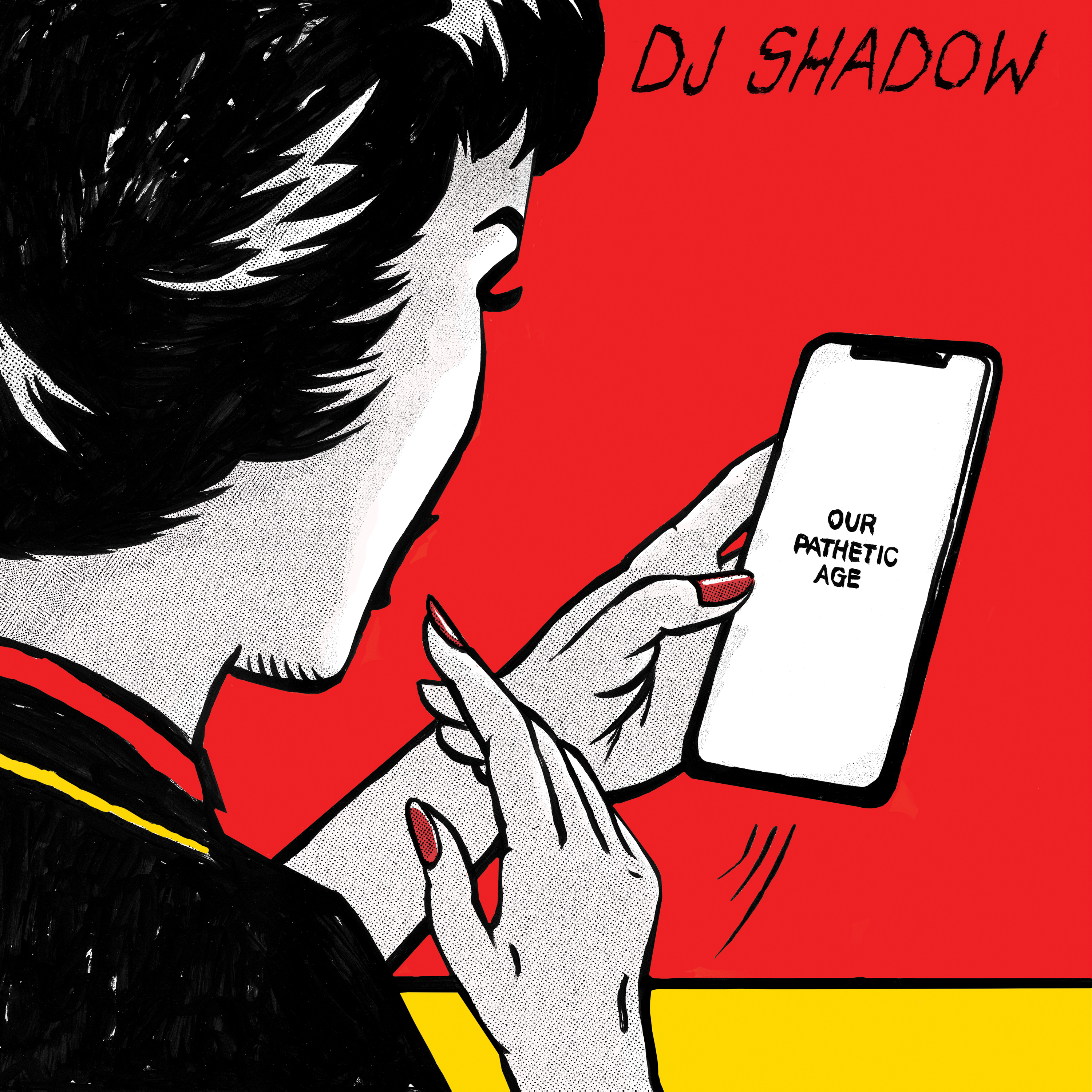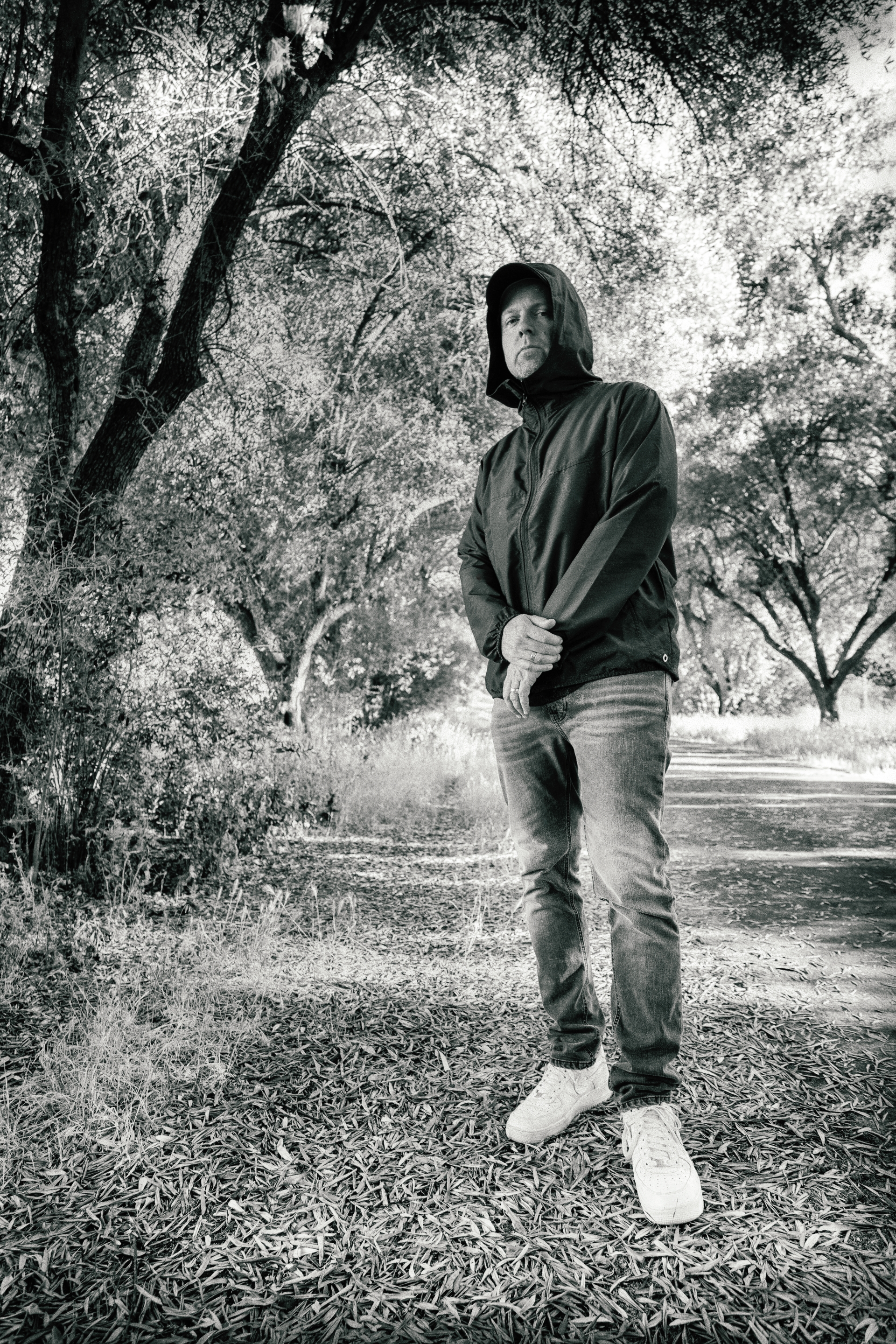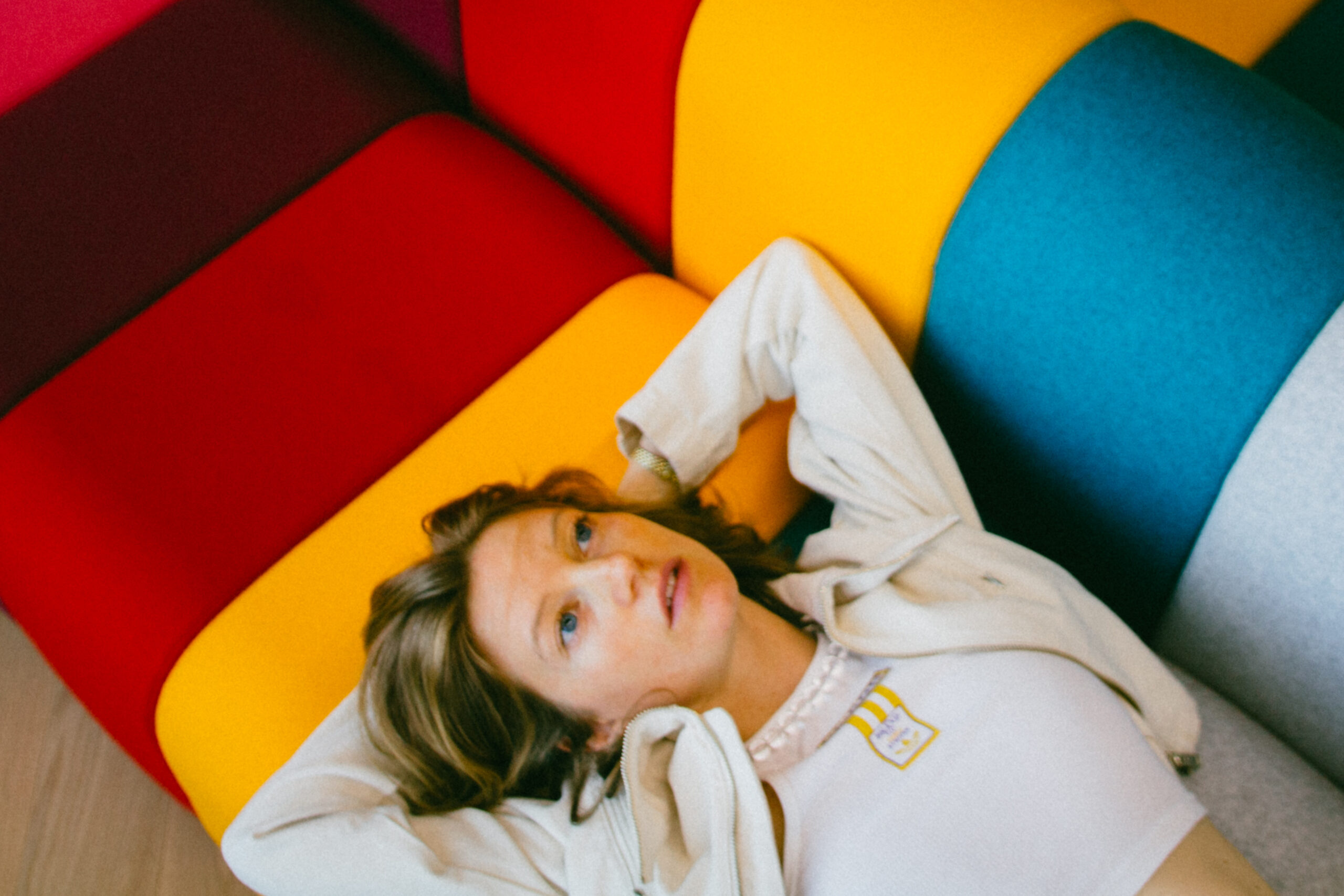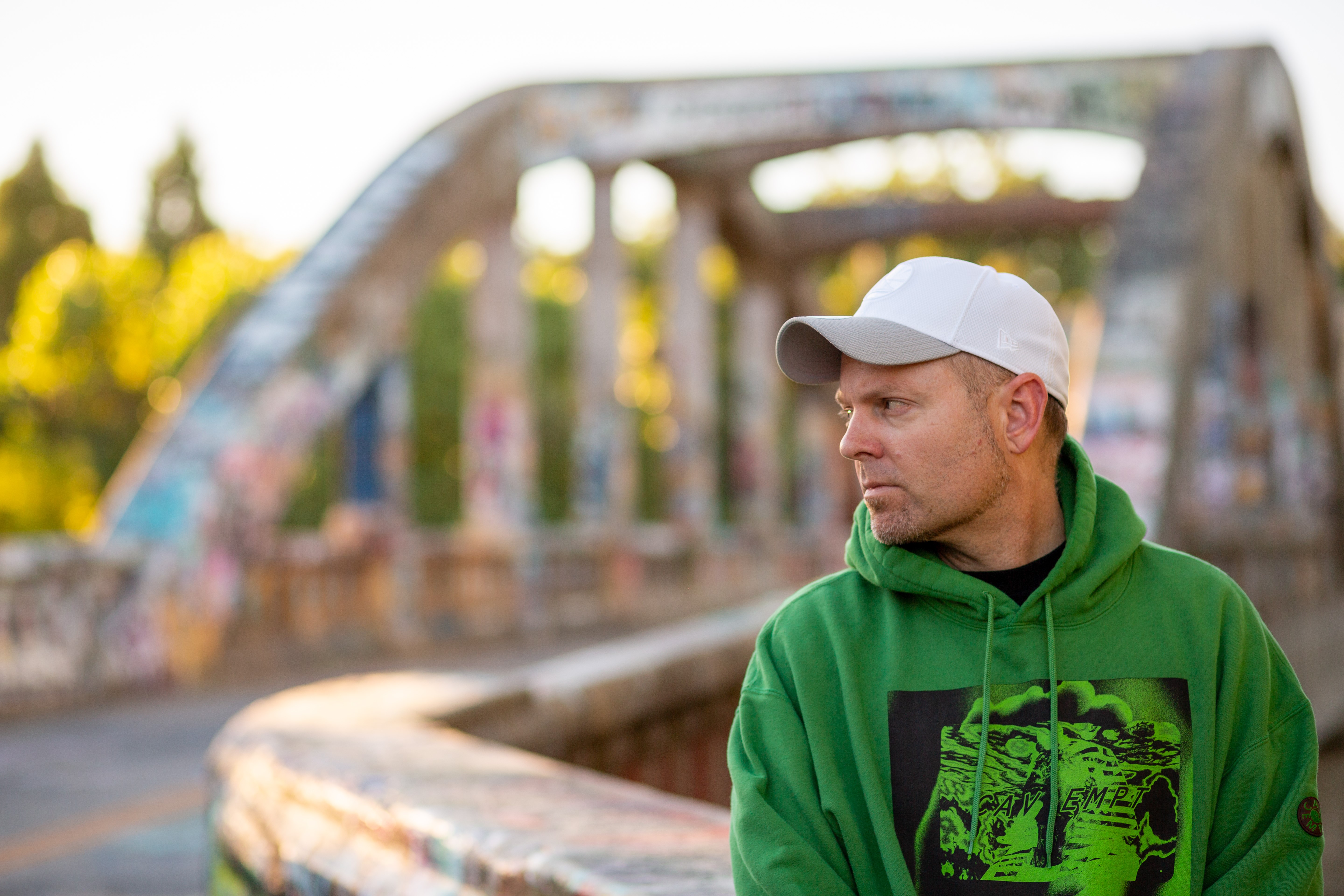Foto-© Derick Dally
Es muss erst der Schlussakt kommen, bevor alles neu anfangen kann. Von diesem Gedanken war Josh Davis geradezu besessen, als er 1996 als DJ Shadow sein erstes Album Endtroducing… veröffentlichte. Er war der Meinung, dass man für eine Hip-Hop-Produktion nicht unbedingt einen Rapper braucht. Als Arbeitsgrundlage reichten ihm ein Akai-Sampler, zwei Plattenspieler, Pro Tools, ein ADAT-Recorder und eine umfangreiche Plattensammlung. Der Kalifornier hatte im Alleingang eine Rezeptur erschaffen, durch die sich die Möglichkeiten erweiterten. Danach näherte sich Josh öfter dem konventionellen Procedere im Hip-Hop an, er förderte den Gedanken der Koexistenz. Das ist auch auf Our Pathetic Age nicht anders. Der erste Teil des neuen Albums besteht aus Geräusch-Collagen, in ihr haben Synthpop, Industrial, Afrobeat, Jazz, Breakcore, Neo-Klassik und Ambient Platz. Der zweite Teil besteht aus Kollabos mit Rappern und Sängern. Mit dabei sind Nas und Pharaohe Monch, De La Soul, der halbe Wu-Tang Clan, Run The Jewels, Dave East, Stro, Wiki, Paul Banks von Interpol und Sam Herring von Future Islands. Thematisch überwiegt geballte Frustration ob der erbärmlichen Zustände in Gesellschaft und Musik, die Atmosphäre ist angespannt. Im Interview nimmt Josh ausführlich Stellung, wird er zum Freestyler, der ohne Punkt und Komma redet. Let‘s get it on.

Our Pathetic Age is a very upfront and vitriolic title. What are for you distinguishing features of the dreadful times we‘re living in?
Are you familiar with the Blurred Lines case? Robin Thicke and Pharrell being sued by the Marvin Gaye estate? The judge basically ruled that the song must be an immaculate conception, you can never have heard Bob Dylan or B.B. King or Elvis Presley or The Beatles or anybody. To him every song must be a thousand per cent original. But that‘s not possible! It‘s like sitting down to write a book and you‘ve never ever read a book before. To me that‘s an example of what I think is pathetic, it‘s anti-human. There are other things. Something like Brexit will be terribly costly to any touring musician who wants to go from Britain to Europe. And then somebody like Prince…these bad meds people make and sell but they‘re so dangerous that people keep dropping like flies. That stuff not safe to take, but they make money so they keep selling it. And that‘s just music. You can really take almost any aspect of our society and apply the title and it works.
Let‘s pick one of them. The album starts with the track Nature Always Wins. Why is it inevitable for you to defend nature?
We have no more bees where we live. I don‘t see them, where have they gone? I live in Northern California. We used to have a fire season that lasted about six weeks. Now it‘s three months. Last year a town called Paradise was wiped off the face of the earth. These are places that are only an hour away from me and in some cases the big fires in the wine country and upper country are only twenty miles from where I live. Ash is raining down on us for a week now. It never happened for 44 years prior to this, now it happens every year. I think it should be a concern for all of us. I can‘t imagine that there‘s people so stupid as to think that their wealth will allow them to keep breathing if there‘s no more air to breathe (laughs). That attitude to me is pathetic, that you wouldn‘t want to care for your own home.

A woman is looking at her smartphone on the cover. Nothing is more important for her than this piece of machinery. Are you appalled by such behaviour patterns?
First of all I‘m literally born and raised in Silicon Valley and as a result of that…I mean, to me it‘s like living in a test market. They are trying to advertise every new product, and the message over and over again is: Now life is getting easier and better, we figured it out, we solved the problem. At a very young age I learned to be very cynical about this. It gets tiring when everybody markets their thing as being something that is pure in values and for the good of humanity. You just know that it‘s for profit, and you know the people who invent this stuff and it‘s going to be used not for good but for bad. Take live streaming. It doesn‘t take a genius to figure out people are going to misuse and abuse the technology – and it doesn‘t matter because it‘s making money. If you keep it to the music domain, every company wants to use music as their way of getting in and being cool. Then they quickly move on to the next thing and they talk about the freedoms, how they want to be artist friendly and this and that. As they become a company and go public, they just default to the same old corporate capitalist way of doing business. It just gets very exhausting and tiring. There are other examples, of course. You can also talk about going to a playground, and you‘re looking at children playing on the swingsets saying: Look at me, look at me! And their parents are not looking, they are just addicted. They might as well be an alcoholic or somebody, they are not really on earth anymore. It‘s hideous.
How do you deal with it as a father? Are you teaching your kids not to overuse phones and computers?
Yeah, they had phones after all their friends. They‘re not allowed to have public social media accounts or anything like that right now at the age they are. We have a no-phones-at-the-table-policy and we limit the amount of time they are allowed to use their phone. We do what we can, but we are not living in some kind of backwards house where we‘re telling them all technology is evil. They‘re free to utilize technology as they want within limits and make their own decisions, and it‘s very important to their generation. But I often will go into a restaurant and go out of my way to be the only person not on the phone. I would much rather just sit around and observe and look around.
On the record you‘re working with people coming from different eras of hip hop – Wu-Tang members, Nas, Quannum MCs as well as Wiki, Pusha T or Stro. What kind of difference do you see between the old and new school of hip hop and why are you embracing both?
There are obviously people I‘ve always been fans of for a long time that I always wanted to work with, and there‘s people that are friends that I wanted to include in the project. As much as I might want to go out and get Migos or Travis Scott, it would be very difficult for me to do that, because I feel that in that world you either need to be a celebrity via social media or some other notoriety, where there would be an awareness of who I am. I could go out and say I want Future and Childish Gambino, but my reality is that I can‘t afford it and I‘m not famous enough (laughs). I have to rely on people who do know who I am. Knowing that makes it easy. There‘s this guy who the label is working with and seems up for listening for some stuff. Let me send it to him and see if he wants to do something – that would be Stro. And working with Lateef The Truth Speaker and Gift Of Gab it‘s like: Hey guys, I really want to have somebody young on this song, who do you know in the Bay Area that has got something going on and seems willing to work on a track like this? And Lateef would say: Oh, I got this guy Taz, you should check him out, he is 17. Pos and the De La Soul guys are a little older than me, I‘m fans of them as I was fans of them all along. It isn‘t about who you invite to the party, it‘s about who comes to the party – that‘s how I‘ve always felt about things.

There are also people on this album who are members of rock bands. Why is Sam Herring the perfect match for the title track?
I wanted a voice that almost sounds old, how Bruce Springsteen would sound like nowadays, seasoned, showing a bit of grit, a bit of age. It dawned on me that Sam Herring‘s voice has that quality naturally. If I don‘t have him in my mind it‘s sounds like I‘m listening to a man in his sixties singing. David Axelrod, who I was friends with, used to talk about that when he was finishing his long last album in the early part of the 2000s. He was talking about how he wanted to get Lou Rawls in. He said he has to get him in the morning when Lou isn‘t fully awake because he has this real… almost how I sound after all these interviews…(laughs)…broken quality to his voice. I was going for the quality and not the person necessarily.
It certainly did help that Sam‘s rapping under the name Hemlock Ernst a lot of times.
Exactly. I didn‘t have to introduce who I was, he knows who I am. I think he knows how to trust me as a producer, we worked very closely back and forth. He probably did four different approaches, and I worked very closely with him on some of the lyrics and things. This song was always going to be a centre piece on the record and I think I was more demanding on him than in any other vocal on the album. I had to have what I wanted. Usually I‘m more of a director type that says: Read the lines how you think it should be read to an actor, you show me what you want to do. But on this song I had to be more correct.
The song Juggernaut sticks out too. What kind of pictures go through your head when you‘re making a noisy track that sounds scary like something by Venetian Snares or The Bug?
I grew up a typical boy in the 80s. Maybe not so typical I ended up naturally being drawn to all of the pre-eminent signifiers of our present culture: comic books, video games and hip hop. I‘ve spent all my lunch money on video games and records. Juggernaut is a character from The X-Men, in the comic book series. In the quote it‘s not that juggernaut, it‘s from some weird movie from the 70s. I took a sample from a radio spot from that movie for the DJs to play. I tried to imagine doing sound design, as if I was working on something into the spider verse, where there‘s this giant creature stomping through the city with people screaming in the background and helicopter sounds. Some of my friends that are producers do a lot of sound design for motion pictures like Transformers. I tried to put myself in that mindspace, and that‘s why it‘s got a little vaguely dubstep feel at times as well. That‘s one of the songs on the album where I‘m trying to flex a little bit as a producer and as somebody who spends a lot time mangling sounds and doing things to sound.
Why have you got the instrumentals in one block and the hip hop tracks in another?
The most successful song I‘ve ever made is Nobody Speak. It‘s more successful than anything on Endtroducing… and more successful than anything from the old days. Which is great. But that doesn‘t mean it‘s now going to be what I lean on when I make music all the time. The instrumental side to me is the side that‘s 100 % me, there‘s no collaboration, there‘s no compromise. I can be as eclectic or progressive as I want, I can change the tempo, I can change the time signature, I can slow it down and speed it up, and I have no drums. I didn‘t want to give people an opportunity to skip those songs. They mean a lot of to me, that suite of music as much defines me if not more so as the songs that are probably going to get a lot more radio play and a lot more use in movies. I wanted to articulate to my fans that this is still the real me. Both sides of the album are obviously me, but the instrumental side is, if I had to choose, closer to my heart because it‘s 100% me.










